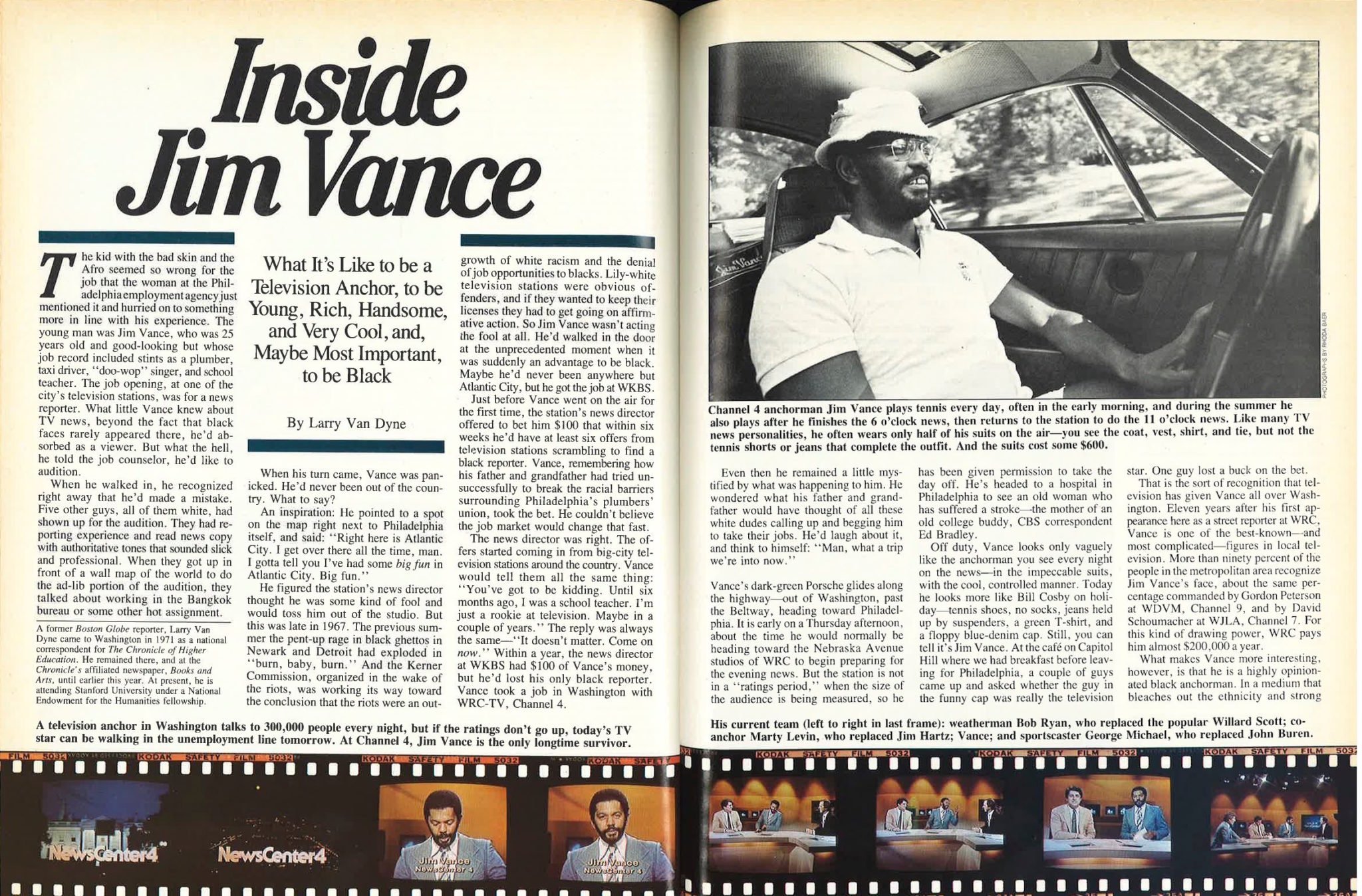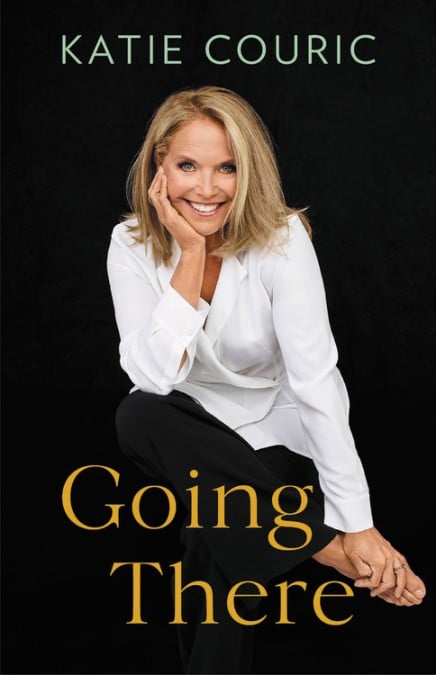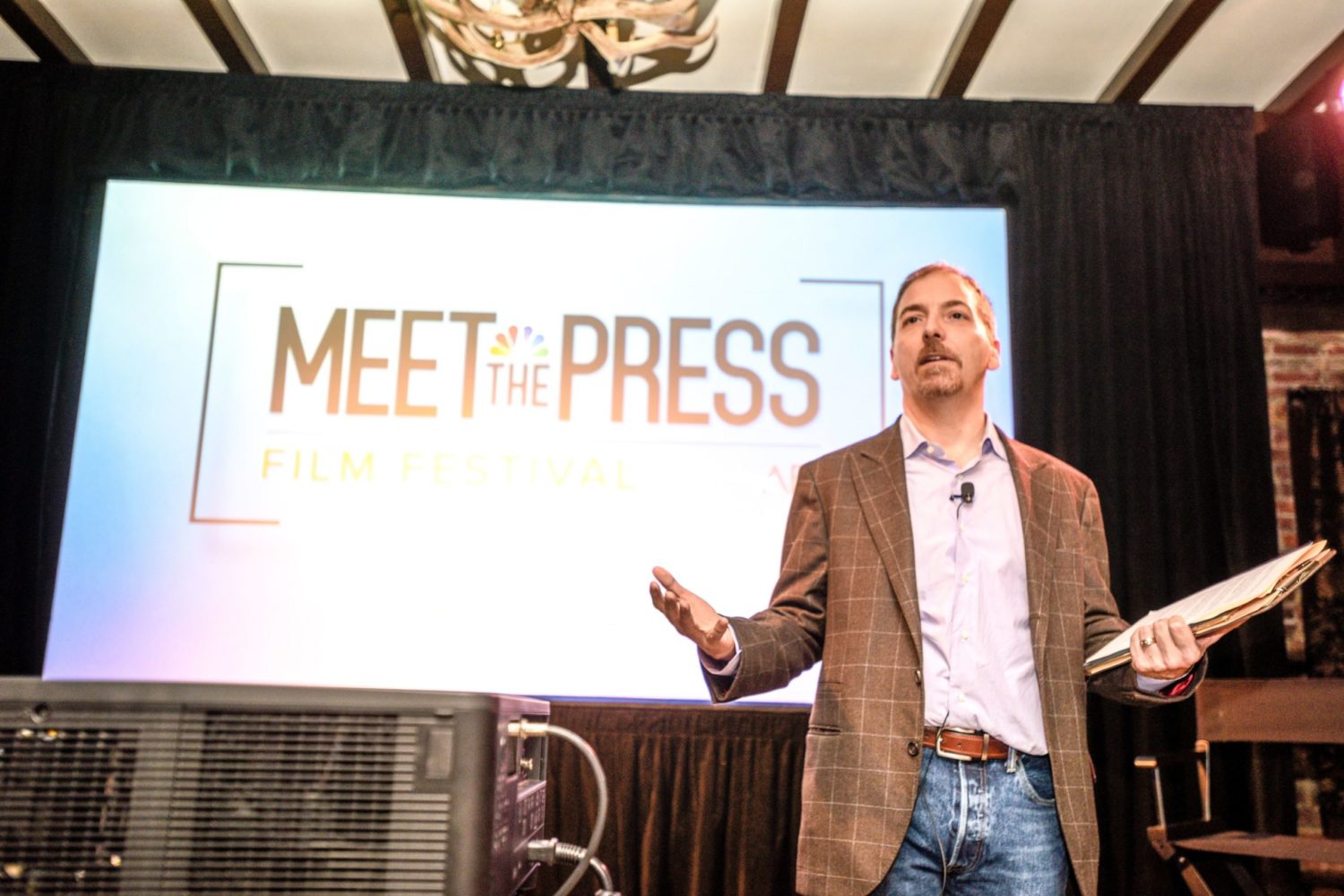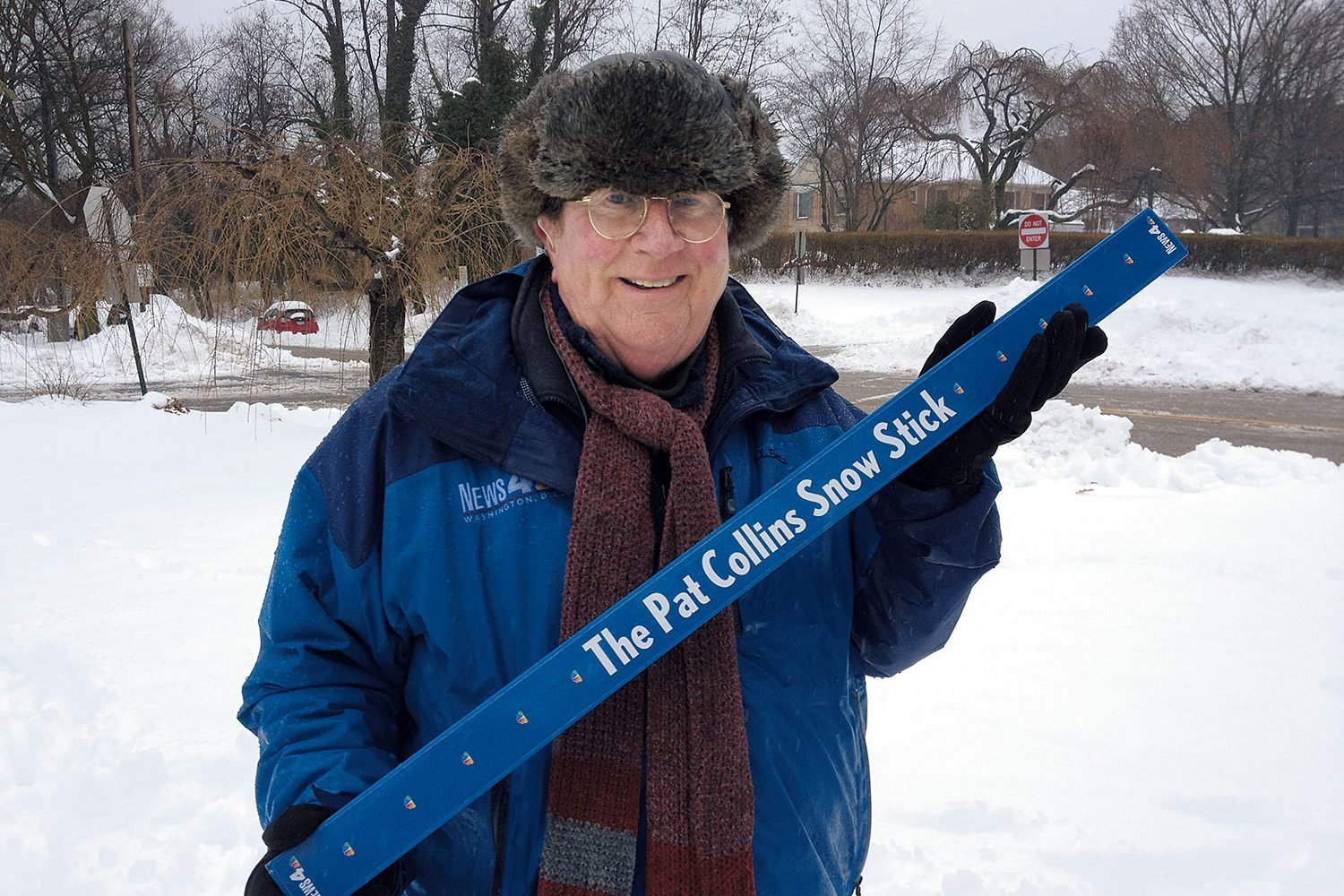The kid with the bad skin and the Afro seemed so wrong for the job that the woman at the Philadelphia employment agency just mentioned it and hurried on to something more in line with his experience. The young man was Jim Vance, who was 25 years old and good-looking but whose job record included stints as a plumber, taxi driver, “doo-wop” singer, and school teacher. The job opening, at one of the city’s television stations, was for a news reporter. What little Vance knew about TV news, beyond the fact that black faces rarely appeared there, he’d absorbed as a viewer. But what the hell, he told the job counselor, he’d like to audition.
When he walked in, he recognized right away that he’d made a mistake. Five other guys, all of them white, had shown up for the audition. They had reporting experience and read news copy with authoritative tones that sounded slick and professional. When they got up in front of a wall map of the world to do the ad-lib portion of the audition, they talked about working in the Bangkok bureau or some other hot assignment.
When his turn came, Vance was panicked. He’d never been out of the country. What to say?
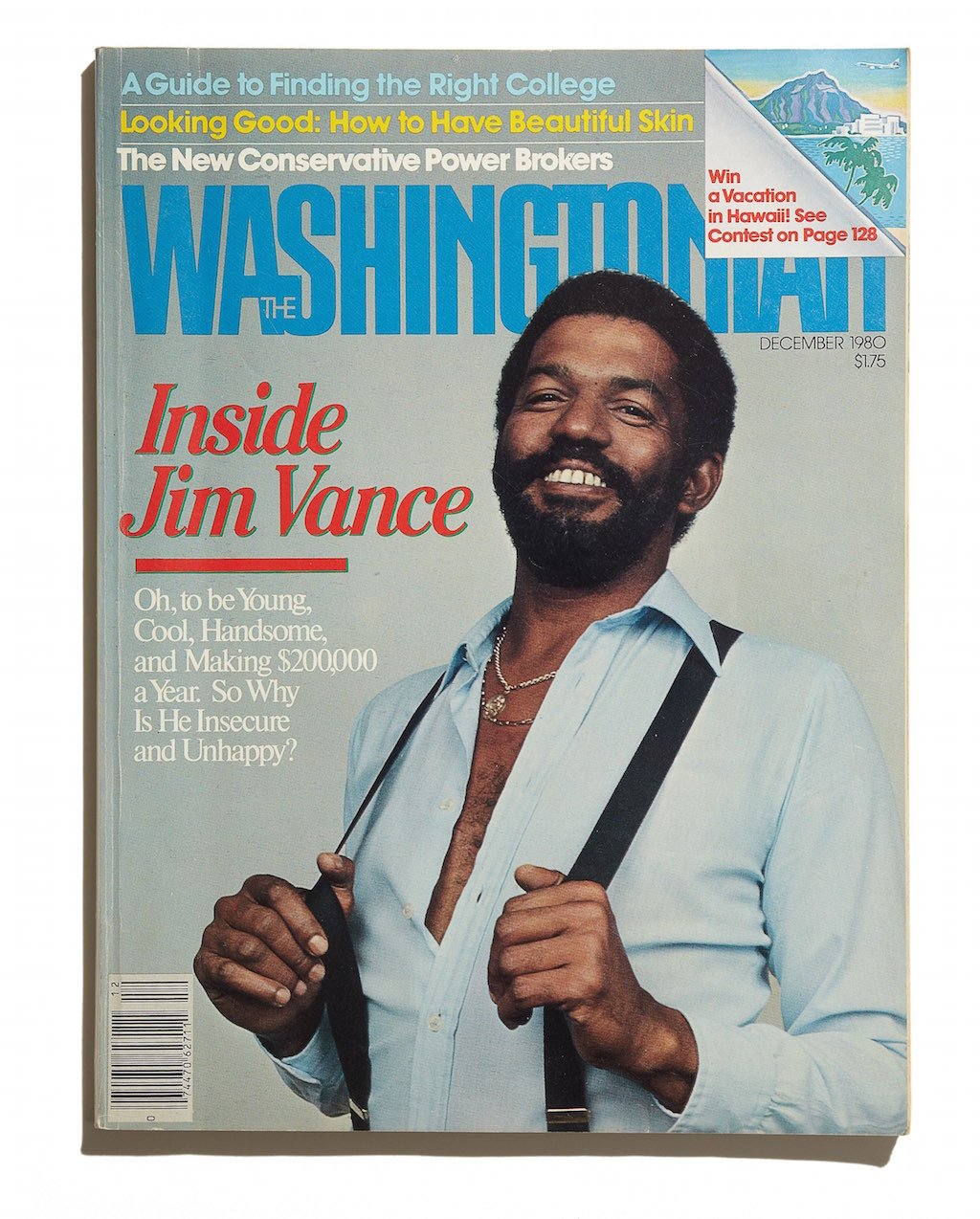
An inspiration: He pointed to a spot on the map right next to Philadelphia itself, and said: “Right here is Atlantic City. I get over there all the time, man. I gotta tell you I’ve had some big fun in Atlantic City. Big fun.”
He figured the station’s news director thought he was some kind of fool and would toss him out of the studio. But this was late in 1967. The previous summer the pent-up rage in black ghettos in Newark and Detroit had exploded in “burn, baby, burn.” And the Kerner Commission, organized in the wake of the riots, was working its way toward the conclusion that the riots were an outgrowth of white racism and the denial of job opportunities to blacks. Lily-white television stations were obvious offenders, and if they wanted to keep their licenses they had to get going on affirmative action. So Jim Vance wasn’t acting the fool at all. He’d walked in the door at the unprecedented moment when it was suddenly an advantage to be black. Maybe he’d never been anywhere but Atlantic City, but he got the job at WKBS.
Just before Vance went on the air for the first time, the station’s news director offered to bet him $100 that within six weeks he’d have at least six offers from television stations scrambling to find a black reporter. Vance, remembering how his father and grandfather had tried unsuccessfully to break the racial barriers surrounding Philadelphia’s plumbers’ union, took the bet. He couldn’t believe the job market would change that fast.
The news director was right. The offers started coming in from big-city television stations around the country. Vance would tell them all the same thing: “You’ve got to be kidding. Until six months ago, I was a school teacher. I’m just a rookie at television. Maybe in a couple of years.” The reply was always the same—”It doesn’t matter. Come on now.” Within a year, the news director at WKBS had $100 of Vance’s money, but he’d lost his only black reporter. Vance took a job in Washington with WRC-TV, Channel 4.
Even then he remained a little mystified by what was happening to him. He wondered what his father and grandfather would have thought of all these white dudes calling up and begging him to take their jobs. He’d laugh about it, and think to himself: “Man, what a trip we’re into now.”
Vance’s dark-green Porsche glides along the highway—out of Washington, past the Beltway, heading toward Philadelphia. It is early on a Thursday afternoon, about the time he would normally be heading toward the Nebraska Avenue studios of WRC to begin preparing for the evening news. But the station is not in a “ratings period,” when the size of the audience is being measured, so he has been given permission to take the day off. He’s headed to a hospital in Philadelphia to see an old woman who has suffered a stroke—the mother of an old college buddy, CBS correspondent Ed Bradley.
Off duty, Vance looks only vaguely like the anchorman you see every night on the news—in the impeccable suits, with the cool, controlled manner. Today he looks more like Bill Cosby on holiday—tennis shoes, no socks, jeans held up by suspenders, a green T-shirt, and a floppy blue-denim cap. Still, you can tell it’s Jim Vance. At the café on Capitol Hill where we had breakfast before leaving for Philadelphia, a couple of guys came up and asked whether the guy in the funny cap was really the television star.
One guy lost a buck on the bet. That is the sort of recognition that television has given Vance all over Washington. Eleven years after his first appearance here as a street reporter at WRC, Vance is one of the best-known—and most complicated—figures in local television. More than ninety percent of the people in the metropolitan area recognize Jim Vance’s face, about the same percentage commanded by Gordon Peterson at WDVM, Channel 9, and by David Schoumacher at WJLA, Channel 7. For this kind of drawing power, WRC pays him almost $200,000 a year.
What makes Vance more interesting, however, is that he is a highly opinionated black anchorman. In a medium that bleaches out the ethnicity and strong opinions of its personalities in an appeal for mass audiences, Vance manages to retain a decidedly urban black personality and to deliver a regular series of sometimes tough and unpopular “commentaries” on the news. He also is a member of that historically important generation of blacks who have achieved success since the expansion of job opportunities born of the civil-rights movement—a group he calls “the new black bougie” and about which he has some surprising things to say.
Vance wheels the Porsche along the interstate north of Baltimore, smoking Kools, sipping coffee from a plastic cup, and talking. “Man, this car is one of the big symbols of my hedonism. There is no good reason to own a car this nice and this expensive except for the pure joy of driving. I got it in ’78 right after I signed my new contract, and it cost $19,000 or so. When I got it, one of the guys at the station asked me how long I had to wait for it. He meant how long for delivery, but I told him, ‘seventeen years, man, seventeen years.’
“Driving is my escape. It gets rid of my anxieties, and cools me out. Sometimes I drive up here north of Baltimore after the 11 o’clock show or out into the Virginia countryside early in the morning. They got some great undiscovered roads out there. There’s nothing like testing this baby out on some straight-away. I am more than a little grateful that I haven’t cracked up.”
130 miles an hour is a very personal thing
I reach for a seat belt, and Vance laughs: “Don’t worry, man, I don’t drive that fast with somebody in here. I only do that alone, ’cause 130 miles an hour is a very personal thing.”
We move into the south edge of Philadelphia, and Vance begins pointing out hometown landmarks—the studios of WKBS, the streets he once worked as a taxi driver, a gas station he once managed, the church where he was married at age nineteen. A stop at the hospital, and we head out to Ardmore, a suburb west of the city where he grew up in the 1940s and ’50s. He maneuvers the car through the streets of Ardmore, past two houses where he used to live. The first, a stone house on a corner, is where he lived with his parents until his father died in 1951. He was nine, and when his mother moved into the city, he stayed behind with his paternal grandparents in another house in Ardmore.
In front of that second house, he stops the car and looks up toward a window where his bedroom used to be. “My grandfather is still one of my heroes,” he says. “The reason is something he did back in the early ’30s. He had the greatest thing a black man could have in those days, which was a steady job, working for a shipbuilding company. “But my grandfather got frustrated with the working conditions and the lack of any possibility of going anywhere. So he quit. With sixteen kids, he just quit—and started his own plumbing business. I didn’t realize until I was about fifteen what a bold move that was. Ever since, he’s been my main man.
“He was one of those hard-driving guys who worked every day of his life except Sunday, and I used to go out on jobs with him all the time. I guess I learned from him the importance of work, that there ain’t no free rides in this world.
“My father, who was also a plumber, worked hard too. At night he would get sloppy drunk, kick 49 asses, and love the ladies. But come 7 o’clock the next morning, he headed out on a job.”
Vance’s father did not survive the abuses heaped on him by himself and others. Everyone noticed changes in him when he came back from Europe at the end of World War II. When he left for the war, I’m told, he neither drank nor smoked,” Vance says. “But when he came home you could see that the war had extracted its price. He had medals all over his uniform—hell of a dude over there, they say—but he also smoked two or three packs of Camels a day and drank like a fish. What killed him was cirrhosis of the liver, when he was 38.”
Vance still broods about some of the treatment his father received. “I always remember an incident when I was about five years old. We were out in the backyard painting letters on my father’s plumbing truck, when I noticed that he was crying. He wouldn’t tell me why—nobody would—and I never found out what the deal was until I was about sixteen and he was already dead. I found out that my old man had gone off to the war, had sacrificed himself for freedom and democracy, and when he came home they wouldn’t let him into the plumbers’ union because he was black. Now that didn’t kill him. The liquor killed him, and I have no illusions about that. But it has always bothered me that his body was okay for cannon fodder, but not okay for a job.”
One of the by-products of living in Ardmore, which was surrounded by the wealthy white neighborhoods along the “Main Line,” was that Vance went to largely white Lower Merion High School, one of the country’s best. “I had the advantage of a good public-school education,” he says. “I was the only black kid in the academic track during most of my years there, but I never felt any condescension from any of the students. Some of the teachers, though, sometimes tried to lay some stuff on me.”
He remembers one physics class where the racial innuendo from the teacher sent a chill through the classroom. “The teacher had a high-pitched whistle which he was using to demonstrate that dogs supposedly could hear sounds that humans couldn’t. He blew the whistle and asked if anybody heard it. I raised my hand, because I swear to God I did hear that whistle. But he looked at me and laughed. Then he said, ‘I always thought there was something abnormal about you.’ He didn’t mean it in a complimentary way, either. I knew that, and everybody in the class knew that.
“About ten years ago, I had a little session with myself about whether I ought to forgive people for stuff like that. I decided I wouldn’t because there was no damned excuse for it. ”
When he finished high school in 1959, Vance wanted to become a plumber too. But some of his uncles and aunts, who were college-educated, insisted that he go to college. They argued that there were still no black plumbers in the unions, which meant he would have difficulty getting construction work and would end up repairing toilets the rest of his liie. If he went to college, he might at least become a teacher. Vance resisted for a few months, but was finally dragged down at mid-year and enrolled at Cheyney State, a black teachers’ college outside Philadelphia, where he lasted one semester.
“I did too much partying and I suppose I was reaching out for some identity and was confused by all the new ideas coming at me. I’ll never forget, I was reading a Look magazine one day and came across an article on nihilism. Nihilism relieved you of all responsibility, and since I was kind of lazy anyway, I thought, ‘Man, that’s what I am. I am a nihilist! That gave me the justification to do what I wanted. I figured I’d skip all my classes and just hand in the papers and take the tests. That’s what I did that first semester. Spent most of my time playing ball in the gym or chess in the cafeteria. I did well on the tests and papers, but when I got my transcript at the end of the semester, it was all Fs. Along with that was a letter saying that I was obviously not suited for academic life and that I’d been kicked out.”
A friend on the faculty got him reinstated on the condition that he make up some of the work in summer school. He did, but during the next four years he was often preoccupied with things other than studying. In his sophomore year, he got married, had a daughter, and then got divorced a few months later. (The daughter, Dawn, is now nineteen and a student at Tennessee State.) And in his junior year, he started dating the daughter of a prominent black judge from Philadelphia. She was Barbara Schmidt, and he married her three years later. His lackluster academic career was capped by flunking a literature course in his senior year that prevented him from graduating. So he moved into Philadelphia and took a job driving a taxi while making up that one course at La Salle College.
When he blew the final exam in that course, he got a printer to make up some fake La Salle transcripts, broke into a college office and borrowed the college seal to stamp them, then carried the forgeries to Cheyney to collect his degree. He stood there scared to death someone would discover the forgery, but the woman at Cheyney put aside whatever suspicions she may have had and approved his degree. In the spring of 1965, he officially became a college graduate.
That allowed him to get a teaching certificate, and he started that fall teaching in a gang-ridden, all-black school in north Philadelphia. “A couple of years later, in the last year I taught, I had a ninth-grade class where most of the kids read at about a sixth-grade level. The curriculum guide called for having them give written reports on Wuthering Heights and some other books that were totally out of their realm. It was clear to me that they weren’t gonna do that, so I told them to read anything they wanted and just be able to come in and talk about it intelligently. It was a big class, about forty kids, and all but one or two read comic books—not illustrated classics either, but Superman and Tarzan and Mighty Mouse.
“Many of them were magnificent in their attempts to do well. One kid got up with his comic book and said, ‘Now check this out, teach. This is what the dude says on this page, and this is what he does over on this page.’ Then he went on to talk about the motivation for the action. It was dynamite, and all those who did well got good grades.
“But the principal couldn’t accept my approach. I argued that I’d let them read comic books in October and have them reading books by spring. All I wanted to do was show them that reading could be fun, that it didn’t have to be just another demonstration of failure. But the administration couldn’t accept anything that wasn’t in the curriculum guide.
“That’s when I started looking for a new job.”
To work in television news, as Jim Vance has for nearly a dozen years, is to live in a strange world. With so little time each night to capsule a day’s events, you must learn to rush through stories in a couple of minutes or less. With the emphasis on the spoken word and the visual image, you must learn to write copy in a special way. And you must learn that your success often depends on ephemeral criteria-whether viewers like your face or your clothes or your style of delivery.
With television’s emphasis on personality—your personality—you have to get accustomed to being a celebrity. You get a certain amount of ego gratification out of the public attention, out of being recognized by garage attendants, secretaries, kids, old ladies, and sleek, sexy women. But the reverse is that you don’t have much privacy.
In the back of your mind, you also have to remember the rules of the television game. The ratings—how much of the viewing audience likes you enough to tune in—are all-powerful in determining how much your station can charge for advertising and how much profit it will make. Washington is the eighth-largest television market in the country, and a single “rating point” means an additional 30,000 viewers and as much as $400,000 to $500,000 a year in gross sales. “You don’t save souls in an empty church,” they are always saying.
Over the past six years, the largest number of Washingtonians have been watching Channel 9. Its early-evening news has consistently ranked first in the quarterly audience surveys conducted by Nielsen and Arbitron, with Channel 4 and Channel 7 trading the number-two spot from one rating period to the next. The same rankings usually apply to the 11 o’clock news, although the race there is closer and depends more on the strength of each network’s 10:30 p.m. lead-in. Among network news shows at 7 p.m., the CBS Evening News with Walter Cronkite is always the winner.
This means that Vance has worked most of his career at a station that has been scrambling and spending to catch up. He has lived through all manner of innovations aimed at finding a magic formula that will click with the audience—new camera angles, a different set, snappier stories, more chatter by the anchors, new time slots, bigger and better promotion schemes. And he has lived through many changes in the “front-four talent”—new co-anchors and weathermen and sportscasters.
Since Vance himself replaced the veteran anchorman Neil Boggs in 1971, he has worked with five different co-anchors. His first mate, Glenn Rinker, was let go and they brought in Jackson Bain from a station in Atlanta. When Bain was let go, they turned to Jim Hartz, who was coming off a stint as host of NBC’s Today show. But Hartz also was let go when the station thought it had pulled one of the great talent coups in local television history by wresting the popular Gordon Peterson from Channel 9. But that deal fell through, when Channel 9 went to court and held Peterson to his contract there, so WRC promoted Sue Simmons to team with Vance. That lineup, one of the rare instances of two black anchors, lasted only a few months until NBC moved Simmons to New York City to anchor the news at WNBC-TV—which, like WRC-TV, is owned by the NBC network. Finally, earlier this year, WRC hired Marty Levin from a station in San Diego. Levin was part of a shake-up that also included the hiring of George Michael as sportscaster and Bob Ryan as weatherman to replace the immensely popular Willard Scott, who was hired away by the Today show.
All of this coming and going has been instructive to Vance, the sole survivor. He was especially disturbed by the dumping of Hartz. “Jimmy was a hell of a dude, both personally and professionally,” he says, “and I was troubled by his firing on a couple of counts. One was a feeling of guilt that it ought to have been me. And the other was the brutal way they iced him. He was out on a story and they called him in to lunch, without warning, and told him he was through. I just sat there that afternoon and thought, ‘Damn, I’ve survived another one.’
“It was a reminder to me that I ought not to get hung up on trying to find security in this business. There isn’t any. I know something could happen and I could be out of here on my ass by 4 o’clock. There are no guarantees, man, no guarantees.”
Vance’s firing is not likely soon. He has been the rock that Channel 4’s news has been built on. The market research that stations do on their personalities indicates that Vance is recognized by more than ninety percent of the people in the Washington area, and that more than thirty percent of them like him “very much.” Vance also has what television stations think of as “good demographics”—appealing to whites as well as blacks, to the young and old alike, and to both men and women. His sex appeal is a fact not lost on the WRC promotion department, which developed a series of spots last summer showing him playing softball without a shirt. He still gets kidded by the camera crews about that piece of beefcake—”Hey, Jim, they don’t care about your mind. You’re just a sex object.”
Vance’s popularity allowed him to command plenty of money in 1978, when he signed a new four-year contract. How much he actually got from WRC is not public—and neither he nor the station will say—but it is thought to be just under $200,000 a year. He got that much partly because he also had a serious offer from Channel 7. Although he apparently negotiated with Channel 7 in good faith, he now says that he’s glad that WRC came up with a good package. “I got close to going over there to team with Schoumacher, but fact of the matter is I really didn’t want to go. I had invested a lot of time at WRC, and I really wanted to stay here and see if we could turn the show around.”
One of the advantages of staying WRC is that Vance now has the stature to ignore most management preferences about his appearance. After being told for several years that he couldn’t have a beard, he just went ahead a few months ago and grew one anyway. Clothes have apparently never been a matter of contention. “They don’t hassle me on that,” he says. “The news director doesn’t particularly like the way I dress, but I never pay any attention to him. Hell, he buys all his clothes from Sears and looks like Farmer Brown.” Ties are a challenge for Vance. He is color-blind, so he brings in several ties and asks someone at the station to match them with his jacket.
What makes Vance so appealing to Washington audiences is difficult to pin down—depth of personality and credibility are the buzzwords they use at the station. Part of it seems to be a perception that he is a real person and not an “empty suit” doing an act. “If at some point the audience rejects Vance, it may be hard for him to accept,” says one of WRC’s news executives, “because he’s hanging out the real Jim Vance.”
Sometimes he is so real that he gives the higher-ups at WRC and at NBC in New York a bad case of the nerves. Last summer, he was talking one night on the 6 o’clock news with movie reviewer Arch Campbell about a new film. They were live and on the air, and Vance blurted out that some of his friends had seen the movie and were “pissed off” that they got so little for their money.
Much wringing of hands followed, and station executives forced Vance to go on the air the following night with an apology. Vance didn’t like it, but felt he had to, so he did a humorous and rather cryptic apology—leaving out, of course, the offensive phrase. After the show, the station was jammed with calls from viewers wanting to know what he’d said that was so terrible. When they were told, most were dumbfounded—not by Vance’s slip, but by the fact that he’d apologized.
Some slipups never get on the air. To watch an anchorman like Vance at work is to realize how much his image of dissolute calmness is an illusion. During commercial breaks, he puffs frantically on Kools as he is bombarded with changes from the control room—stories being dropped, added, revised. There have been times, he admits, that he came coolly out of a story to a commercial break, then had to make a mad dash for the bathroom to relieve his tensions.
Another subject of argument between Vance and management surrounds an on-air technique called “cross-talk.” That’s where reporters are brought onto the set at the conclusion of the taped part of their stories and the anchorperson is expected to react or ask them questions about it. Cross-talk became one of the hottest techniques in news broadcasting during the 1970s, and WRC’s news executives think it helps punctuate stories and underscore their importance. They were livid a couple of years ago when Jim Hartz jumped from an exclusive story about the dangers of asbestos in hair-dryers directly into the weather with Willard.
Vance thinks that cross-talk runs the risks of disintegrating into phoniness or “happy talk” and that it has little to do with real journalism. “If a reporter is any damned good, he’s gonna tell viewers in his story what needs to be said. There’s no need for him to come into the studio and for me to ask him some question about it. Most of the time I’m seeing his story for the first time, just like the viewers, and I’m busy with script changes and a million other things. I’m not likely to come up with any profound questions. Hell, most of the time the question is gonna be one he wrote down for me to ask, because he doesn’t want to be embarrassed by a question he can’t answer.
“When I feel deeply about something, I’ll react. There was a story a few months ago about some dude in Baltimore who beat his kid and kept him locked in a closet. I was genuinely moved by that story; when we came out of it, I didn’t say anything for a couple of seconds. That much dead air is an eternity in television—and was an honest reaction. That’s okay, but just to react for the sake of reacting or just to ask a question for its own sake is not my style. That’s show biz, man, that’s not news. I do it because I can’t fight it all the time. But I don’t like it, and I do it as little as possible.”
When Jim and Barbara Vance’s new baby arrived in 1970, they brought her home from the hospital without a name. She was “baby Vance,” while her father went browsing through bookstores searching for a magic name to give the child an identity. The name had to be just right—symbolically right. Vance and his wife finally picked “Amani”—Swahili for “peace.”
The choice, so self-conscious of heritage, is a reminder of the historical moment that has shaped Vance and many other blacks about his age. No other group of Afro-Americans, with the exception of those who lived through the Emancipation, has experienced social changes quite so sweeping. When Vance was 11 years old, the US Supreme Court handed down the Brown decision on school segregation. When he was 17, black students began the lunch-counter sit-ins in Greensboro. When he was 19, James Meredith was admitted as the first black at the University of Mississippi. And when he was 21, Congress passed the civil-rights act whose influence still reverberates through America.
Those changes have allowed blacks to enter in the media, business, and other institutions—that were once nearly all white. For many young blacks like Vance, the changes have meant better salaries and middle- to upper-middle-class lifestyles that their parents would never have dreamed of. Vance—with his Porsche, his suits from Alonso’s, a house on Capitol Hill and an apartment in Adams-Morgan, a college education, and an annual salary in six figures—is a heightened example of this new black bourgeoisie.
But making it in the white world creates its own dilemmas. How much do you assimilate into the white mainstream and how much do you hang on to the distinctive features of black culture? What are your responsibilities toward the poor blacks who have not made it? How do you behave inside white institutions where you still have little power?
“Black people now don’t have a place,” Vance says. “We know we don’t like this one [here he reaches down toward the floor], and we’re still a little uncomfortable in this one up here. Where the hell is the middle ground?”
He pauses, as if to emphasize the point: “My daddy never had to deal with no shit like that.”
He goes on: “Ten years ago I had conga drums and spears and African masks all over my walls. So much of my past had been denied, so much lost, so much overlooked that I was trying to catch up. I was ashamed, frankly, that I knew so little. I suppose there was a time when I had a ‘blacker-than-thou’ attitude.
“Now the masks and spears aren’t displayed quite so much, because I don’t feel as much need anymore to wear my heritage on my sleeve. Maybe it’s a sign of maturity that I’m just quietly comfortable with it now. I don’t beat my kids over the head with black history. But we do rap, and I guarantee you that the opportunity is rarely missed to stick in a little bit of the culture here and a little bit there.”
Vance believes that some members of the black bourgeoisie are trying to escape their cultural heritage—and he reserves some of his most stinging criticism for them. “One thing you notice when people start moving up is a change in their language. There’s a cautious expression of the ing and ed at the end of words and you don’t hear as much of the old fencin’ and jivin’ kind of talk. There’s a conscious effort to talk white, walk white, and behave white.
“Sometimes too the black bougie is into blackness, but it’s calculated blackness. They have black art on the walls, but it’s not for the sake of identifying with the culture. It’s more for the sake of completeness. They have an original African mask and a Mercedes 450 SL, they serve collard greens with cordon bleu, or they have a Romare Bearden and a swimming pool. But that Bearden is not there because they identify with how that brother suffered, with the passion and force in his life and art. They got the Bearden ’cause it’s gonna be worth four times as much in ten years. It’s too calculated, man, too calculated.”
For Vance there were cultural implications in deciding where to buy a house—a decision his ancestors, for reasons of discrimination and too little money, never had to face. “At the time I bought my first house here in 1973, I really could have bought a house about anywhere I wanted. I’d always had the idea that each generation should have better living conditions than the last, so I thought about moving to the suburbs. I realize there are advantages to living in those affluent, all-white neighborhoods.
I just had an uncomfortable feeling about moving to Bethesda or Potomac, where my kids would be less inclined to know something about their own people
“But we finally decided to buy a place on the Hill. It was a pretty funky neighborhood in those days—a lot of junkies and shoot-outs. But in addition to those criminal elements, there were a lot of good people around—black families and nice old ladies who watched out for the kids. And these were my folks, man. I just had an uncomfortable feeling about moving to Bethesda or Potomac, where my kids would be less inclined to know something about their own people.”
Vance also believes that the new black middle-class has some social debts to pay. “My generation often got opportunities because we were black, in that fleeting moment when America had the mirror up to its face, and I think that places on us an extra burden. Unfortunately, there are some of us out here who have lost sight of the fact that we didn’t do this shit alone. It took generations of struggle, and we owe something in return. I know people who’ve forgotten that and have become so much a part of the establishment that they’d be the first to go come the revolution.
“There’s also a big problem when you ride around the city. You realize that with all the gains and all the improvements we’ve made in the past twenty years, you don’t see a hell of a lot that’s different. You see as many poor black folks as ever who are burdened with the sarne debilitating attitudes about themselves. You see twelve-year-old kids who are ready to quit school, because they’ve been turned off and taught to hate it. You see all of those things and you wonder: ‘Goddamn! Is my success worth anything at all? I’m looking good and doing good, and for every one of me there’s ten of them.’ Sometimes you get the feeling that you’re being used.”
One of the best examples of social irresponsibility by some members of the new black middle-class, Vance thinks, is their failure to support other black professionals. “Sometimes in the midst of the two cars and color televisions and fine stereo equipment, we forget that the lawyer is white, the doctor is white, the dentist is white, and the accountant is white.
“I hear black people say they’re not gonna go to a black accountant because ‘the nigger don’t know shit.’ Or they’re not gonna allow a black plumber into their house because he might ‘steal me blind.’ Now those are the attitudes that are going to maintain a situation where a few of us are looking good and doing good, while masses and masses of others are in the same boat my granddaddy was in fifty years ago.”
Vance was confronted by this question himself two years ago when he was entering negotiations with Channel 4 on a new contract. He’d never had an agent before, but because the contract was sure to involve big money he thought he’d better hire one. Several people recommended high-powered agents in New York and Los Angeles. but Vance decided instead to hire Guy Draper, a black Washingtonian who subsequently became DC Mayor Marion Barry’s chief of protocol. Draper had little experience representing talent, but Vance says he is pleased by the results.
Another set of dilemmas for blacks on the way up, Vance says, involves learning how to handle oneself inside white institutions, how to play office politics and learn to balance racial militancy with flexibility. “The late ’60s were an especially difficult time. White people in the office were saying you weren’t worthy, that you’d gotten the job over qualified whites just because you were black. On the other hand, you were sensitive to the charge by blacks that the only reason you’d been let in was because you were acceptable to whites. Nobody wanted to be an Uncle Tom, so you often overcompensated by being militant and keeping up the rhetoric about tokenism.”
One experience in his early years at WRC helped Vance resolve some of his own conflicts about this issue. A black friend from Philadelphia got a job at the station, but after a series of disputes with management was fired. “His experience was very sobering for me,” Vance says. “Partly I felt sorry for him. He was just so filled with bitterness—or, more positively, with passion—that he was impatient. He couldn’t see the advantages of compromise. Up to that point, while I wasn’t as defiant as he was, I wasn’t all that far away. But his experience taught me a great lesson. It’s true that you’ve got to make some people feel threatened because that’s the only way to get them to respond favorably. But you’ve also got to learn when to give a little.”
With more than 300,000 Washingtonians watching him every night, Jim Vance has considerable power to affect their thinking about racial matters. His black presence—like that of Max Robinson on the ABC network news—makes a certain point, but Vance goes beyond that in bringing a minority perspective to his audience. It shows up not only in the “commentaries” he delivers, but also in the news copy he writes.
A few months ago, for instance, the wire services ran a routine story on the death of Jay Silverheels, the Indian actor who played Tonto in the old Lone Ranger series. As he sat at his typewriter rewriting the wire copy, Vance knew he would have only a few seconds that evening for the obituary—never enough time to explain that Silverheels also had been a shrewd businessman and a spokesman for lndian rights. So he put in a line saying that Silverheels was “an Indian who could say more than Kemo Sabe.”
“Frankly it was one of those things that I try not to do, but I ain’t always able to resist the temptation,” he says. “I know that one little line won’t make a hell of a lot of difference in anybody’s life, but I do it so I can live with myself. I’m a child of the late ’40s and ’50s and I grew up watching Tonto and Tarzan. Tonto was always just the ‘faithful Indian companion’ of the white man. And Tarzan, even though he was the only white dude around, ran the whole damn jungle. We know now how insidious and damaging those stereotypes are, but when folks hear that Tonto is dead they have a tendency to flash back to those old images. I didn’t have time to counteract all of that, so I put in that one line about Silverheels on grounds that it’s better than nothing.”
There are other news items that Vance would like to counter in some way, but that have to pass because to do so would be professionally inappropriate. “Remember when Andy Young was catching hell for talking about racism in various countries? I read those stories on the air every night straight, but inside me was a screaming voice saying, ‘Now go ahead and tell them the brother is telling the truth.’ But as a newsman, I couldn’t do it. That’s where the commentaries have saved my life.”
Opinionated commentaries by television anchormen are a rarity, and Vance is the only one in Washington who regularly does them. The idea originated in 1975 with the man who was then WRC’s news director; he read some of the speeches Vance had been giving to high school students and thought they ought to be on the air. At first Vance refused, uncertain whether his opinions were really worth that much and fearing they might drive away the audience. He finally overcame his own objections, and the commentaries have become the personally most important aspect of his work. They’ve won him an Emmy, but more importantly they are one of the main ways he hopes to meet those social responsibilities he thinks success has imposed on him.
They do not appear on a regular schedule—only when he works up steam about some topic—but that’s usually several times a month. The topic may be anything. Sometimes, it is a national or international issue—Howard Jarvis and the tax revolt, oil companies and the price of gasoline, Jimmy Carter’s handling of the Iranian hostage crisis. Other nights he has something to say about local matters—the Marvin Mandel case, home rule for the District, or the decriminalization of marijuana. (Vance has been known to smoke a little of it himself. He tried cocaine but it made his nose itch, he says, so he quit.) Or sometimes he is touched off by a personal experience—a nostalgic memory of his old Philadelphia singing group, the Joytones, or some difficult moral question put to him by his daughter, or something about Shogun, his prized Japanese Akita.
Much of the appeal of the commentaries is in their passion and street-level authenticity. You hear the authenticity in the language. Who else in television news talks about cut-and-shoot dudes or shufflin’ and boppin’ or grumblin’ and wolfin’ or my main squeeze? Would Carl Rowan or Max Robinson say that Anwar Sadat is lookin’ good?
The opinions are not always predictable—he once defended the use of Sambo’s as the name of a restaurant chain—but they lean fairly consistently to the left. He has promoted passage of the Equal Rights Amendment, favored the Panama Canal treaties, defended Ramsey Clark’s trip to Tehran, and argued for the right of the poor to government-funded abortions.
His opinions, as you might guess, are strongest on racial matters. Sometimes he is talking directly to whites, reminding them how much of the civil-rights agenda remains undone. Many times he is talking mainly to blacks. Take this comment on the shooting of a young black man:
“While Blaine Pitts is dead and his father is left to pick up the pieces of a shattered dream, there is some punk somewhere out there, maybe gloating, who had nothing better to do with his life than kill the brother cause he wouldn’t give up his watch.
“I’m gonna make an assumption. I’m gonna assume that whoever shot Blaine Pitts was black. Know what he did with that? He validated a statistic—the one that suggests that the greatest hazard to a young black man is not cancer or high blood pressure or heart attack, but death at the hands of another young black man.
“Now ain’t it a damn shame that after all these years of Afro-growing and dashiki-wearing and fist-clenching and racial pride and calls for unity, ain’t it a shame that we still buy the enslavers’ story that we must be our own worst enemies? Lord, when are we gonna see the light?”
On our way home from Philadelphia, Vance flips on the headlights of the Porsche as night descends over the highway. Ordinarily about this time he would be on the set at WRC, puffing nervously on a cigarette during the commercials, then turning back to the camera to project the image of a man in complete control of the day’s events. But tonight, as we speed back toward Washington, all of that seems far away and he sits behind the steering wheel groping through a monologue about his inner turmoils.
Some of them have to do with unresolved troubles in his marriage—a matter he considers too private to discuss with a stranger. But, as I listen, he does reveal sides of himself that might surprise those who know him only through television. For a man whose electronic image is the epitome of self-confidence, he is full of insecurity. For a man whose work is so public, he is a loner who longs for privacy. And for a man who has hit it big and achieved more success than he or his ancestors could ever have imagined, he is filled with doubts about what it is worth.
When I’m in Washington, I’m a focus of attention, and I really hate that because I’m basically a private person who likes to be alone
“A lot of people look at what I do—the money I make, the lifestyle I can afford, the recognition I get—and assume that I must be on top of the world,” he says. “But they don’t know some of the frustrations and confusion I’ve gone through in trying to pull myself together as a whole person. Fact is, man, my shit is pretty jive. Sometimes I don’t even know where the top of the world is. Ed Bradley knows that. Barbara knows that. A couple of other people know that. And they’re precious people to me, because they are patient and don’t reject me.
“For some reason I tend to be insecure. I suppose that would surprise some people, but I really am one of the least confident people you’ll meet. Sometimes it’s just impossible for me to feel good about myself, and the depression over that can become a heavy burden. When that happens I sometimes just pack up my tent and fishing rod, get in this car, and take off to the mountains. The feeling usually passes in a couple of days, but it’s something I worry about.”
For a moment or two, he is silent, dragging on another Kool. “A few months ago I went and laid it all out for a shrink, because I realized that I needed to talk about it. One of my faults has always been that I keep all my problems bottled up inside. I used to think that was okay—to be the strong, silent, macho man. But I’ve come to see that for what it is—which is bullshit. There’s no strength in that, only a corrosive weakness that eats you up inside. For a while my gut was so dead with anxiety that it ached all the time. Internalizing your problems that much is debilitating, which is one reason I really ought to go back to see that shrink one of these days.”
As the Porsche comes down over a rise near the southern end of the parkway, the lights of Washington come into view and Vance seems to sense that he is plunging back into being a celebrity. “I really enjoyed getting away today,” he says. “When I’m in Washington, I’m a focus of attention, and I really hate that because I’m basically a private person who likes to be alone.
“That’s one reason you’ll not find me out boppin’ around town a lot. I like to go to Manuel’s or the One Step Down to listen to jazz, but I’m not big on parties. Parties, for me, are just no fun. I meet people and talk to them, but I never have the two hours it takes to get beyond the guy they see on television to the real me. I also wonder sometimes if they would even bother to talk to me if I were still just a school teacher.”
We are inside the city now, and Vance stops the car to let me out. Tomorrow night he will be back on the 6 o’clock news—lookin’ good and doin’ good, earning the big six-figure salary, epitomizing success. But for now, just before he drives away, he wonders out loud whether being a television anchorman is the best that a man can do with his life. “I guess my real problem,” he says, “is that I’m not sure this anchoring deal is what I’m here for.”
